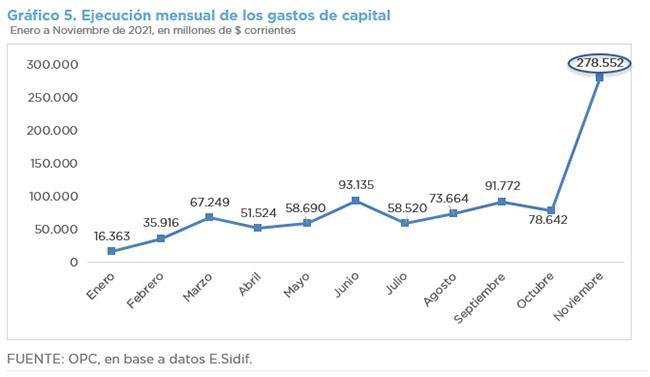Primary expenditure had the highest jump so far this year (41.2% YoY), partly driven by transfers to government-owned companies and trust funds, which increased 10 times.
In the 11th month of the year, total revenues expanded 7.4% YoY in real terms, driven by the good performance of most of its items.
- Export duties grew 18.5% YoY because of the increase in international prices and the exchange rate.
- Social Security contributions increased by 13.3% YoY, because of the higher number of contributors and the low base of comparison for 2020.
- Energy subsidies increased 26.0% YoY because of increased transfers to CAMMESA (Argentine Wholesale Electricity Market Clearing Company).
- The discontinuation of the IFE (Emergency Family Income) and the ATP (Emergency Assistance for Work and Production) were partially offset by the “Potenciar Trabajo” (ARS22.812 billion) and Food Policies (ARS18.007 billion) programs, whose resources increased by 85.9% YoY and 48.2% YoY, respectively.
- Funds allocated to the Previaje program amounted to ARS13.581 billion.
- Real direct investment (ARS32.786 billion) recorded a real increase of 107.3% YoY, focused on road and railroad works.
- The primary deficit increased 188.1% YoY and the financial deficit increased 100.5% YoY.
- The initial budget for the fiscal year increased by 30.9%, which is equivalent to ARS2.597 trillion, prioritizing social programs, capital transfers and energy subsidies.
- Expenditures related to the COVID-19 pandemic accounted for 84.8% of the current appropriation (ARS414.813 billion), and items funded by the Solidarity and Extraordinary Contribution accounted for 71.2% (ARS145.718 billion).

